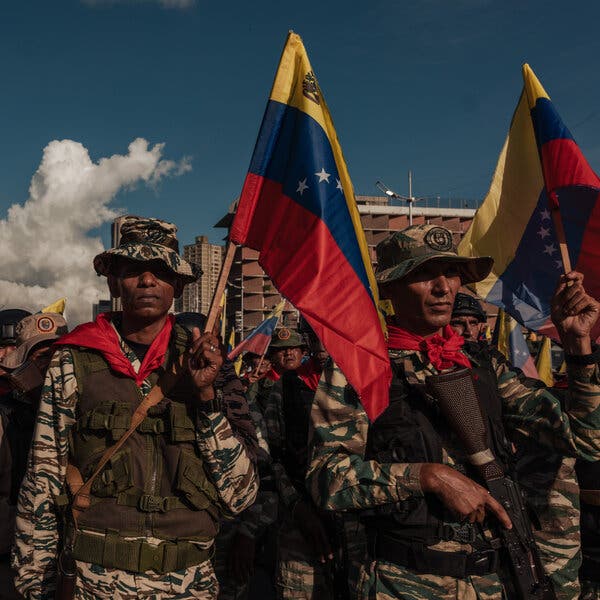The political landscape in Venezuela is shifting as the U.S. increases its military presence in the Caribbean. President Donald Trump has deployed warships, surveillance planes, and an attack submarine to the region, intensifying scrutiny on Venezuelan President Nicolás Maduro. The U.S. government has accused Maduro of being a leader of a drug cartel and a “fugitive of American justice,” with some officials suggesting that the broader aim is regime change.
While the Trump administration describes its military maneuvers as necessary for protecting American interests, the prospect of intervention raises deep concerns among Venezuelans and regional observers. Previous U.S. military actions have left lasting scars, leading many to question the implications of a potential intervention.
Divided Opinions on U.S. Intervention
There is a palpable divide among Venezuelans regarding U.S. military assistance. Some, including opposition leader María Corina Machado, advocate for American military backing to oust Maduro, who has faced accusations of human rights violations, including torture and enforced disappearances. According to independent monitors, Maduro lost the 2024 election but has maintained his grip on power.
Conversely, local sentiments reflect a broader skepticism towards foreign intervention. Many Venezuelans express fears that military action could precipitate chaos, with armed factions—ranging from the military to Colombian guerrilla groups—vying for control of the nation’s rich resources, including oil and gold. One businessman illustrated this concern starkly, stating, “You kill Maduro, you turn Venezuela into Haiti.” The historical context of U.S. interventions in Latin America adds to the apprehension surrounding military action in Venezuela.
The Venezuelan government is also attempting to leverage these sentiments. The country’s vice president recently claimed that the American populace does not desire a war in the Caribbean, reflecting a strategy to rally domestic and international support against perceived U.S. aggression.
Strategic Interests in Latin America
Trump campaigned on a promise to avoid foreign wars, yet his administration’s actions suggest a complex stance toward Latin America. The focus on Venezuela is not merely about humanitarian concerns; it is also tied to political ideologies and regional influence. Secretary of State Marco Rubio has been vocal about the need for regime change, emphasizing that the U.S. cannot allow “a cartel, operating or masquerading as a government, operating in our own hemisphere.”
This perspective aligns with a broader interventionist approach that has characterized U.S. policy under Trump. The administration has threatened actions against drug cartels, intervened in Brazilian politics, and recently offered a substantial $20 billion loan to bolster the political support for Argentina’s President Javier Milei. Such moves reflect a strategic pivot towards securing influence in America’s backyard.
Looking ahead, Defense Secretary Pete Hegseth is reportedly preparing to unveil a new national defense strategy that prioritizes “protecting the homeland and the Western Hemisphere.” This suggests that the current military buildup off Venezuela’s coast may be a precursor to a more formalized doctrine focused on regional intervention.
As the situation evolves, the implications for both Venezuela and U.S. foreign policy remain significant. The potential for conflict raises questions not only about the future of Maduro’s regime but also about the broader consequences for the region, where the specter of intervention looms large.
